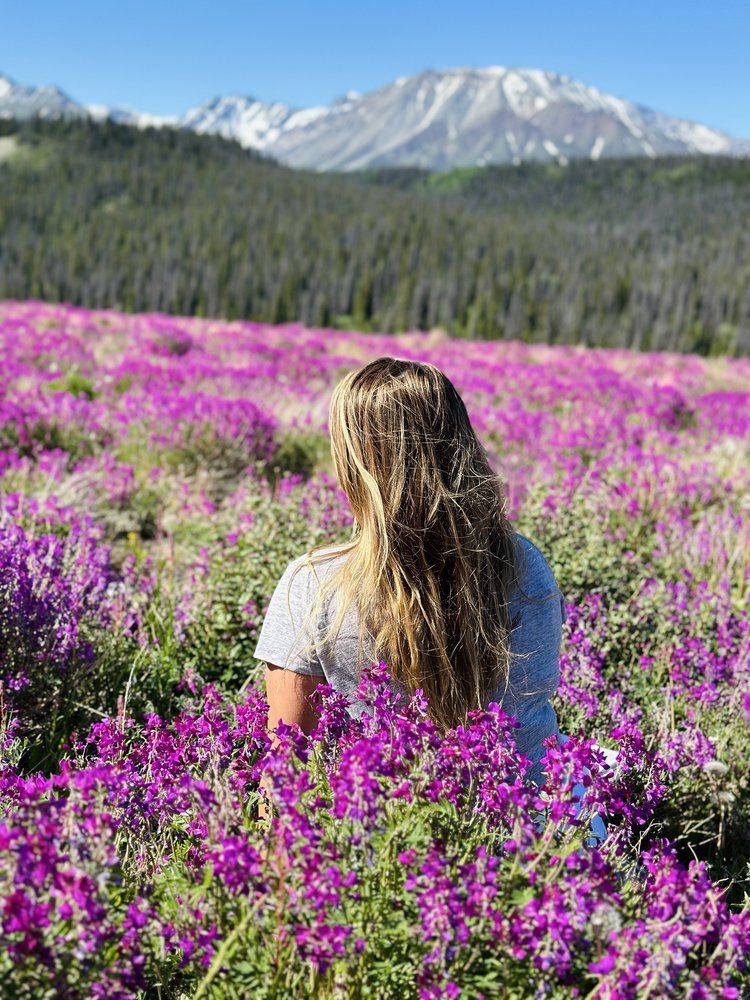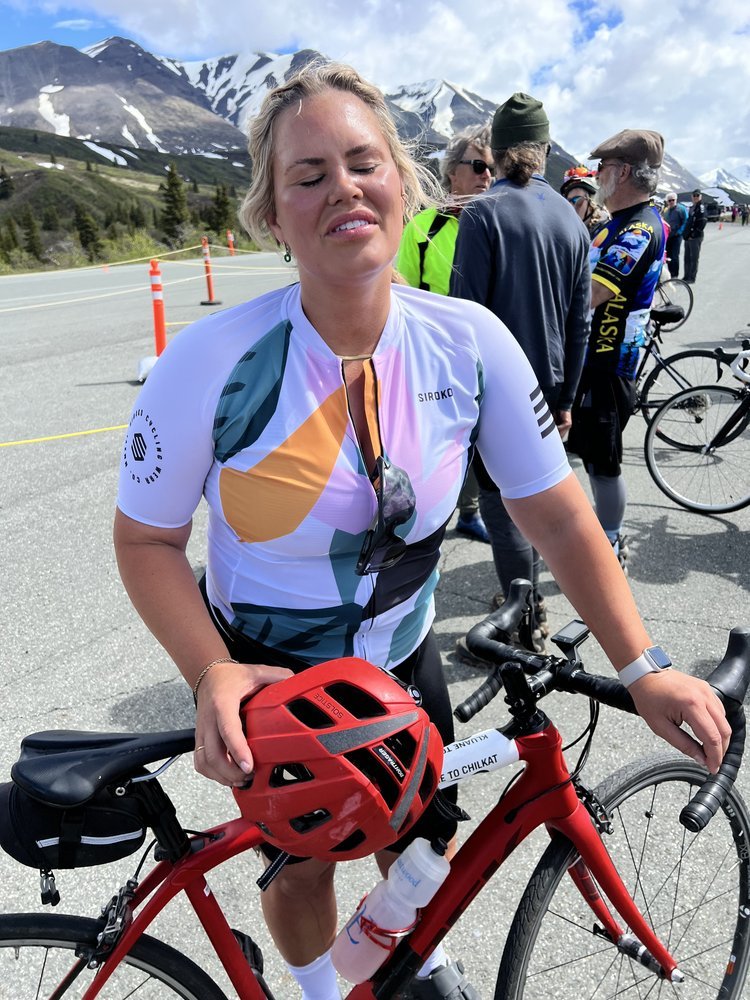My Body
Five years ago, I wrote myself a note. I wrote it while on a multi-day hike. Write a note to someone you love, we were told. I’ll write it to myself, I thought. It was a period when I was working on ‘self-love’ and all that. The note was short. I told myself that I appreciated my body. My thighs were dimpled and my waist wider than it had been, but this body had carried me up and down the mountain passes. It allowed me to do the things I loved to do and so I expressed gratitude for that.
I think of that note from time to time because that perspective is hard for me to hold onto. It’s hard for me to believe and to embody. A lot of the time, the words feel empty and false. Like lies, even.
Three and a half years ago, a routine blood test revealed that something was ‘wrong’ in my body. A genetic mutation. A myeloproliferative neoplasm. Cancer. I remember that time vividly, but what I remember most was how betrayed I felt by my body. I felt separate from it. My insides were working against me. That’s how it felt.
It took some time for me to shift those feelings. To recognize that there was more to it. That this chronic condition was part of me and that all parts of my body and spirit could work together. That we were one, for better or for worse.
I wouldn’t say I’ve ever had a particularly good relationship with my body. Pre-teen and teenage years in the early aughts, a time rife with the most severe diet culture. And I was constantly dieting. Atkins, Weight Watchers, Slim Fast, raw food, the Master Cleanse. These were the backdrop to popular-culture references about celebrities who were deemed ‘unworthy’ because of their size. Nothing tastes as good as skinny feels. The famed Kate Moss quote was one I clung to.
My body never looked how I wanted it to. I was bigger than my friends. Bigger, wider, fuller. And when, after a toxic relationship ended in my early twenties, I did lose weight – a lot of it – I remember being praised. Told how great I looked, constantly. In reality, I was struggling. Really struggling. The message that stuck with me, though, was that my worth was tied to my size. I remember telling a friend that I’d never forgive myself if I gained the weight back. Just kill me if I gain it back, I joked, the words laced with sincerity. I did, though. Gain it back, and more. I hated myself for it.
My relationship with food and diet culture and my body has softened with age and with distance from urban life. I feel less trapped by comparison. Less bombarded by trends and expectations. I feel free. Freer at least. But not always.
The last four months have been marked by some medical uncertainty. An appointment with my specialist in Vancouver in February in which we discussed the introduction of a new medication to slow the scarring in my bone marrow. Weekly bloodwork and monthly oncologist appointments. And then the discovery that my condition had progressed. Toxic changes. A left shift. An eventual stem cell transplant. Would my brothers be a match. There was time, but time would likely be needed.
I wanted to feel strong. That’s all I wanted to feel. Push the rest aside and move forward, happy, positive. And of course, that’s not what happened. Like waves crashing down, the emotions came. Some moments I felt strong, and some I didn’t. And then when I didn’t, I resented myself. Others have it harder, I reminded myself. It could be so much worse. I’m being dramatic.
Before my most recent bone marrow biopsy.
A few weeks ago, I participated in the annual Kluane Chilkat Bike Relay. It was my first time. I was nervous. I’m a casual cyclist, and I love my time on my bike. I’m not fast, but I can go and go. Cycling on my own allows me to observe and reflect and challenge myself without comparing to anyone other than me. The thought of participating in a race with 2000 other riders was daunting. I wondered if it would taint the enjoyment I get from my time on my bike. Would my competitive edge prevent me from having fun?
And more than that, I found myself thinking about my body. How inadequate it was. How broken it was. Inside and outside, it just didn’t feel worthy. I felt embarrassed that I’d be squashed into cycling gear. Of course I was slow, look at me. That’s what I thought people would think. That I had no right to be there because of my body.
The weeks leading up to the race coincided with a bone marrow biopsy, the worry about changes, and the ultimate discussion with my specialist that progression had indeed been discovered. And what emerged were profoundly negative thoughts about my body and my ability. At the time, I thought it was merely due to anxiety about the race. Now I see it was a lot more than that.
In this picture, I’m asking C not to take any photos. My arms bulged out of my jersey and I was ashamed of how I looked. I still feel that shame.
We’re exposed to body positivity and, simultaneously, overwhelmed with messaging suggesting quick fixes to achieve the ‘ideal’ body. Fat burning teas, bloat reducing pills, less meat, more meat, less cardio, more cardio. Ads for quick access to Ozempic and Ozempic-dupes fill my social media, and the message from all of it is that what I am is not enough. These opposing forces create a paradox that make it challenging to feel love for one’s body. Navigating the space between body positivity and quick fixes and pharmaceuticals creates a confusing and emotionally taxing experience.
My husband tells me confidence is key. That my body is more than good enough. I just don’t know how to feel that confidence. I feel my body should take up less physical space and because that’s not something I can achieve, the best I can do is to take up less space metaphorically. To shrink in the only way I know how.
Self-compassion is important, I know that. At the same time, I found myself struggling to have self-compassion for my body. This part of me that has caused such pain. This part of me that is flawed. Mutated. Doesn’t fit society’s mold, no matter how hard I try.
If I take a step back, I realise the problems with this perspective. I am reminded of the letter I wrote to myself. My body may not look perfect, but it allows me to do the things I love. And what is perfect, anyway. My body is the vehicle I have to live this life. My body will be with me as I grow and change and challenge myself. My body will be with me for the rest of my life.
I did the bike race and it was great. I sweated and I peddled; I was tired, and I was exhilarated. Just like all the other people on the course, people of all shapes, sizes and levels of fitness. I’d love to finish this piece by saying that I’ve worked it all out. That I’ll never feel badly about my body again. I’d be lying. Instead, I want to focus my energy on what my body is able to do rather than how it looks. I want to move because I feel good doing it not because I am trying to look like someone on the movies I’ve never met and have no connection to. I want to quiet the noise around me about how I should look and instead, focus on what my very own body is telling me. On how I feel. And I want to feel strong enough to do the things I love to do. Like cycling.
This is my body. This is my life. My body carrying me through my days, good ones and bad ones.






